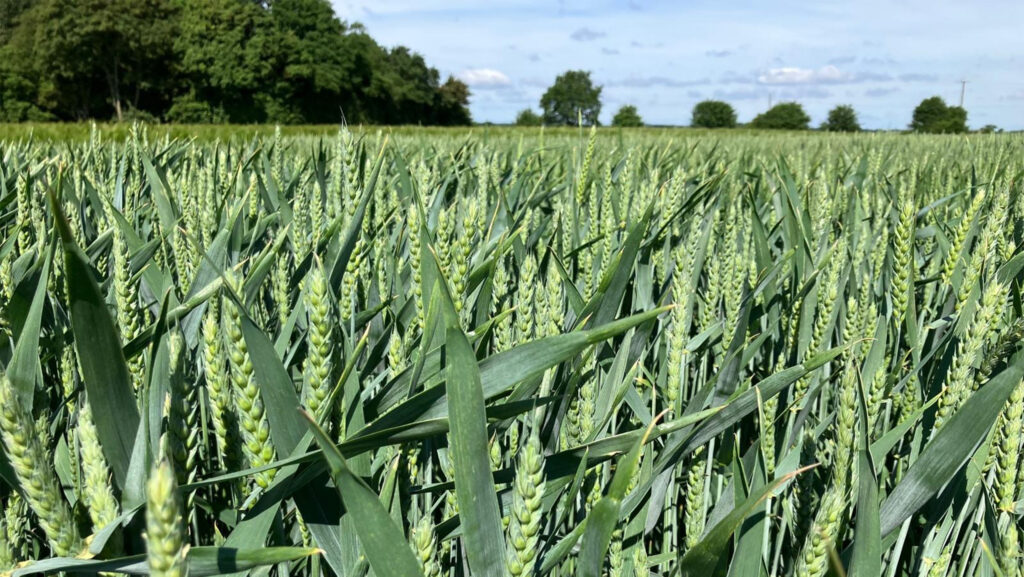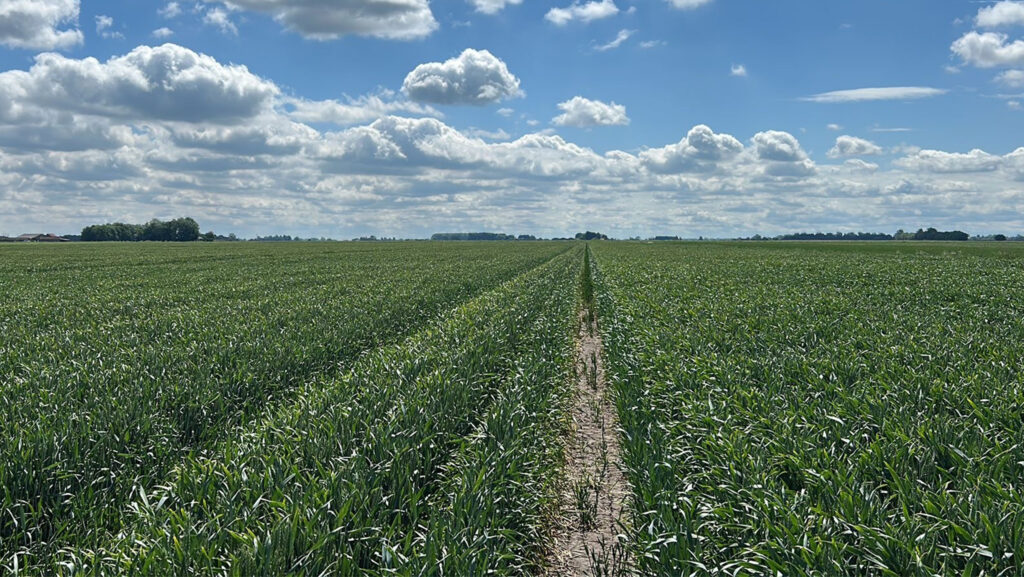Merchant seeks farmers to grow premium-earning bread wheat
 Nelson wheat © Cope Seeds
Nelson wheat © Cope Seeds A Lincolnshire merchant is seeking farmers to grow Nelson winter wheat next season, in response to growing demand from millers for the high-protein variety.
Farmers can grow it under buyback contracts with seed and grain specialist Cope Seeds and supply it to Heygates millers, which is increasing its volume due to the high protein and favourable breadmaking characteristics of the crop.
See also: Disease and weather shakes up wheat variety choices
Heygates senior executive George Mason says: “Nelson grown to 14% protein brings us quality and functionality that will displace imported wheat, and we are committed to using the maximum amount of home-grown wheat wherever possible.”
“By offering a buyback contract that incentivises growers, the combination of an additional quality premium and the benefits of the variety on-farm, we are finding the variety very popular,” he adds.
Nelson is a German E quality wheat, with high nitrogen use efficiency.
It has the ability to achieve high protein with a reduced nitrogen programme and fewer fungicide inputs overall, due to its strong disease profile.
Here, two growers outline their experiences growing the variety.

Nelson wheat © Cope Seeds
Yorkshire grower
Neil Welburn, a Yorkshire-based grower with 80ha of Nelson, first adopted the variety to combat blackgrass after struggling with heavy weed pressure.
“We started with Nelson because it’s a German E wheat, and great for blackgrass control,” he explains. “It worked. I’ve never grown a crop like it.”
Neil initially drilled at a high seed rate, which led to lodging, but after adjusting the rate, the results were remarkable, even on flood-prone land.
“Nelson recovered phenomenally,” he says. “It’s very clean, doesn’t get stressed by inputs, and needs fewer sprays.
“Even in a high disease pressure season like this one, it’s stayed spotless. It meets spec and gives good protein levels with less nitrogen, it’s a no-brainer.”
Lincolnshire grower
Adding to this positive feedback is Lincolnshire-based Colin Chappell. He is growing 9ha of Nelson for seed, but is likely to grow it under a buyback contract with Cope Seeds and supply Heygates.
“Nelson is clean as a whistle,” says Colin. “The rest of my farm is battling yellow rust and some septoria, but Nelson has held up.
‘It didn’t even need a T1 fungicide. We gave it a T2, and we’re considering skipping the T3 – it looks that clean.”
Colin’s input costs have remained low.
“We’re looking at about £20/ha on fungicide inputs, plus 160-180kg/ha of fertiliser, one growth regulator, and a nutrition programme. That’s excellent for a milling variety.”
Cope explains that Nelson – with its high protein and Hagberg falling number – can earn a premium over normal Group 1 premiums, and farmers can grow it on a buyback contract.
Yellow rust resistance
According to Cope research agronomist Dominic Amos, independent trials in Essex are showing that Nelson has the best combination of resistance to the major foliar diseases, especially yellow rust, this season.
“Given the high yellow rust pressure and the emergence of a new race that has overcome the YR15 resistance gene, Nelson demonstrates a resistance level comparable to the leading varieties on the Recommended List,” he says.
One of its key strengths is its growth and development pattern, holding back over winter, followed by strong, vigorous growth in spring.
These traits make it particularly well-suited to coping with increasingly common wet winters and spring droughts.
The variety’s longevity is remarkable, and while other varieties are struggling to keep up, Nelson remains steadfast to biotic and abiotic stress.
“Nelson continues to prove itself as a highly versatile and dependable option,” adds Dominic.
“It really does work across systems, soils and seasons, especially for growers looking to reduce input costs without compromising on quality.”

